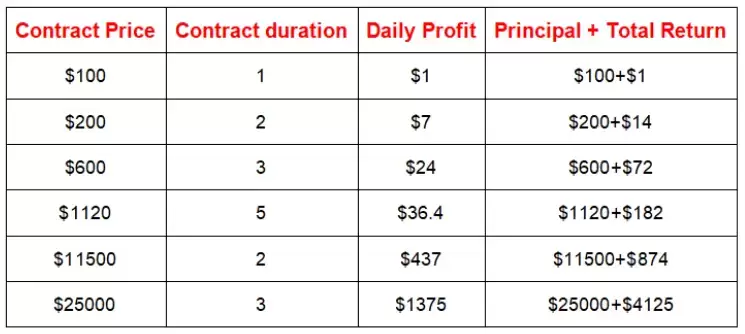 |
|
 |
|
 |
|
 |
|
 |
|
 |
|
 |
|
 |
|
 |
|
 |
|
 |
|
 |
|
 |
|
 |
|
 |
|
Cryptocurrency News Articles
AI Trading Agents Are Disrupting the Financial Services Industry
Apr 21, 2025 at 05:25 pm
There’s no denying that AI has permeated into most of today’s popular industrial sectors. However, its impact has been particularly pronounced when it comes to the financial realm, with AI trading agents — autonomous entities that leverage machine learning, natural language processing, and real-time data analysis to optimize trading decisions — gaining a lot of traction globally.

In today's rapidly evolving technological landscape, Artificial Intelligence (AI) has undoubtedly made its mark on most of the industry sectors that matter. But perhaps no domain has felt the full brunt (or benefit) of AI's capabilities as keenly as the financial realm.
This is especially true when it comes to AI trading agents – autonomous entities that are capable of learning, adapting, and making optimal trading decisions on their own, combining the best of machine learning, natural language processing, and real-time data analysis to generate high-performing trading strategies.
A quick glance at the numbers reveals that the market for such agents is poised for significant growth, with experts predicting the technology to expand at an impressive rate, rising from a 2024 valuation of $5.1 billion to an astounding $47.1 billion by 2030.
Moreover, in markets like India, AI-based algorithmic trading has already reached unparalleled heights, currently handling about 55% of the total trading volume on the nation's largest exchange, the NSE. To put that into perspective, retail investor participation in algorithm-based trades has increased by 25%, while the adoption of AI-powered trading models (in India alone) has surged 120% over the last 5 years.
And to no surprise, these agents have been found to deliver prediction accuracies of up to 78%, especially when signaling short-term market corrections.
An AI-driven DeFi ecosystem
The last couple of years have seen the DeFi sector undergo a massive makeover, with technologies like AI, NLP, and ML (amongst several others) rapidly seeping into this space. There are now many blockchain-based protocols that have integrated AI into their frameworks to enhance market efficiency, all while simultaneously allowing traders to execute sophisticated strategies without their constant involvement or oversight.
Among the projects leading this roost, Giza has stood out head and shoulders above the rest of the competition, offering clients a holistic agent-driven DeFi automation platform.
At its core, Giza provides the necessary infrastructure for the next generation of autonomous DeFi agents. Its ‘semantic abstraction layer’ simplifies complex protocol interactions, enabling AI agents to interpret and execute financial operations more effectively while its ‘agent authorization layer,’ built on smart account infrastructure, ensures non-custodial operations and allows users to retain full control over their assets. Finally, its ‘decentralized execution layer’ provides crypto-economic security guarantees, ensuring that agents operate in a transparent and trustless manner.
That said, Giza’s true innovation lies in its autonomous trading agent, ARMA, which operates far beyond the capabilities of basic automated tools. To elaborate, ARMA has been designed to continuously monitor multiple DeFi protocols, execute complex yield strategies, and dynamically adapt to changing market conditions (while maintaining a high degree of user security and sovereignty).
Also, unlike conventional bots that follow rigid pre-programmed instructions, ARMA functions with an adaptive intelligence layer, enabling it to respond to real-time financial changes with precision. As things stand, there are already thousands of ARMA-driven agents managing hundreds of thousands in assets across leading lending protocols.
AI trading analyzed within a global context
As AI-powered trading agents have gained prominence, regulatory bodies worldwide are taking steps to establish governance frameworks that ensure fair and transparent financial markets, as they introduce certain new risks (including algorithmic biases, market manipulation, and potential systemic failures) into the mix.
For instance, in Germany, financial regulators have established a clear and structured framework for AI-driven trading platforms, thus providing much-needed stability and legal clarity for financial service providers deploying AI in their routine trading operations. Plans for the introduction of an AI code of conduct with guidelines for due diligence, data governance, and explainability of algorithmic trading systems are also in place.
Similarly, India's Securities and Exchange Board (SEBI) has implemented specific regulations for algorithmic trading, ensuring that AI-driven strategies operate within well-defined parameters to prevent market abuses. SEBI's regulations also mandate the creation of internal governance structures and procedures for managing algorithmic trading activities.
Beyond national regulations, the broader global financial landscape is adapting to AI-driven finance. The Bank of England, for instance, is considering the inclusion of AI-related stress tests in its annual assessments to evaluate potential systemic risks posed by algorithmic trading.
Looking ahead, it will be interesting to see how AI's growing influence on financial markets impacts the broader economic landscape.
Disclaimer:info@kdj.com
The information provided is not trading advice. kdj.com does not assume any responsibility for any investments made based on the information provided in this article. Cryptocurrencies are highly volatile and it is highly recommended that you invest with caution after thorough research!
If you believe that the content used on this website infringes your copyright, please contact us immediately (info@kdj.com) and we will delete it promptly.
-

-

-

-

-

- Kraken exchange is listing BNB at 14:00 UTC on April 21
- Apr 21, 2025 at 11:30 pm
- As a result, Binance coin (BNB) is gaining strong momentum as anticipations are building around the corner. This strategic move is triggering BNB's visibility and trading volume by opening access to a broader user base.
-

-

-

-




























































